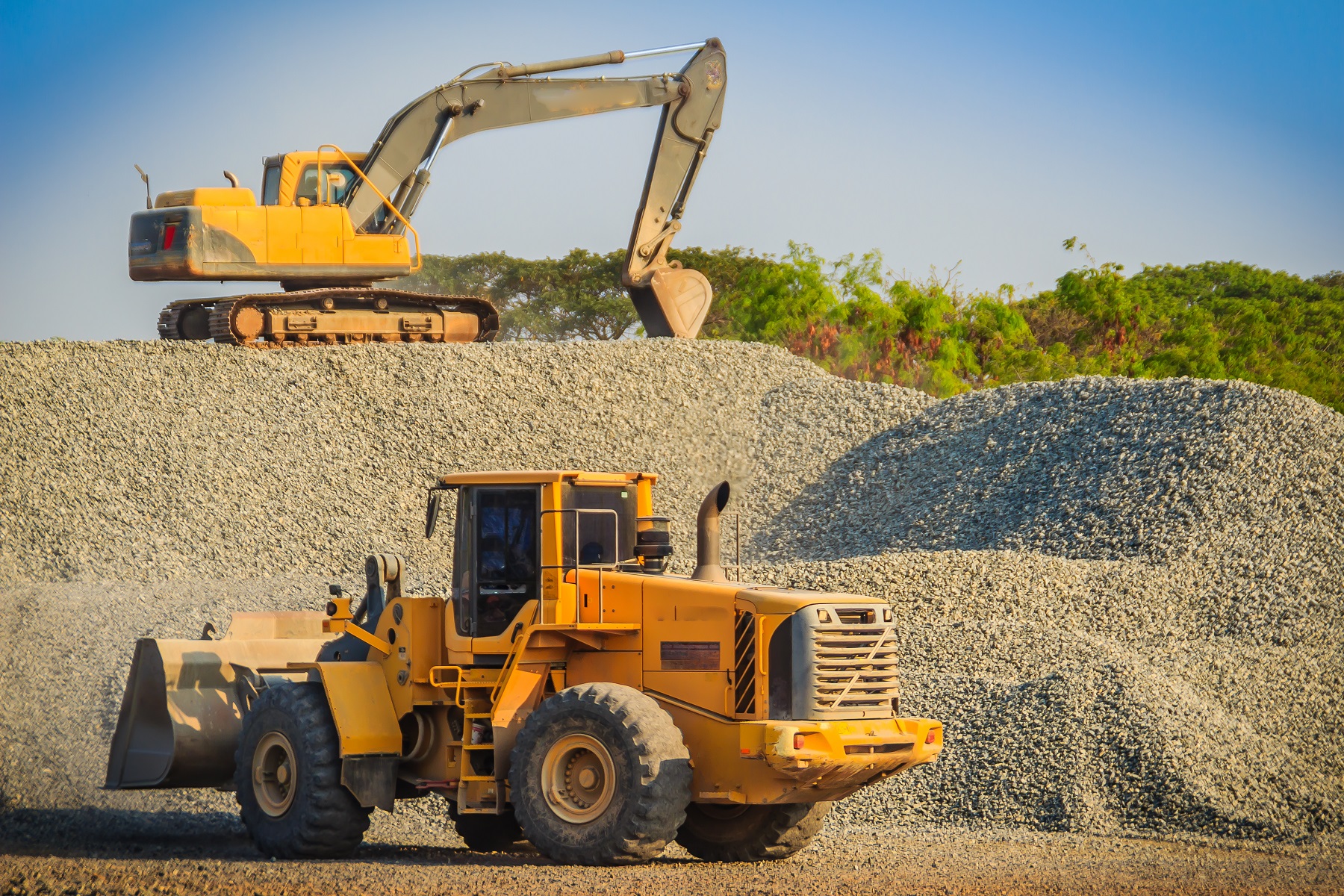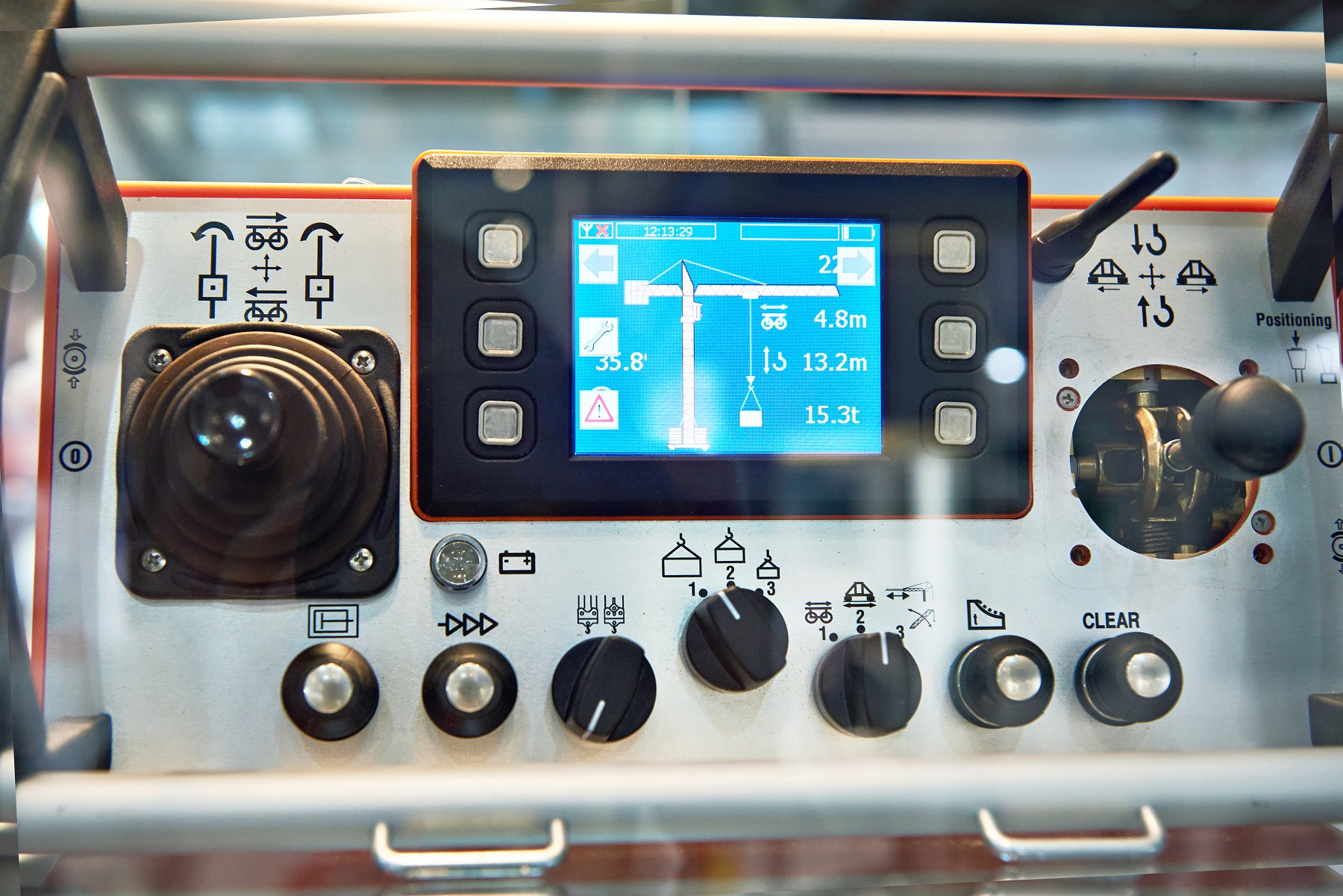How Are Mobile Hydraulics Different from Industrial Hydraulics?
One might think all hydraulic systems are the same. After all, they are designed to deliver the power needed to perform functions that would not normally be possible by hand, such as lifting, bending, digging, and so on. However, when it comes to the applications and use of hydraulic systems, there are some key differences between industrial hydraulics and mobile hydraulics.
Similarities Between Industrial Hydraulics and Mobile Hydraulics
Before we get into the differences, let’s do a quick review of the basics of hydraulic systems. For starters, the system consists of a series of hydraulic pumps, motors, cylinders, pistons, hoses, control valves, and other parts and components to direct hydraulic fluid through the system.
This displacement of the fluid through the system is what creates the necessary pressure to provide the force needed to perform the specific application. This process is similar, whether we are using an industrial or mobile hydraulic system. There must be some sort of pressurization to generate the necessary force.
What Is an Industrial Hydraulic System?
Industrial hydraulics refers to a wide range of hydraulic machinery used in manufacturing processes, printing, metal forming, stamping, injection molding, and so on. These machines are typically not bound to specific limitations in size. Machines can vary in size based on their operations.
.jpg)
The hydraulic system can be configured and customized to fit the desired functions the machine needs to perform. As such, there are no design limitations on an industrial system, other than running out of space or exceeding one’s budget.
What Is a Mobile Hydraulic System?
Mobile hydraulics refers to all types of hydraulic machines that are mobile and used in various types of environments. This can include, but may not be limited to:
- Forklifts
- Cranes
- Diggers
- Harvesters
- Excavators
- Fire Engines
- Telescopic Handlers
- Woodchippers
- Winches
- Apple Pickers
- Air Seeders
- Mowers
- Lorries
Essentially, any type of machine that is used outdoors, in hot, cold, wet, and dry conditions could be defined as a mobile hydraulic system. There are a few exceptions, like an oil rig in the middle of the sea. Some of the hydraulics onboard could be referred to as industrial, while others like the drilling rig could be referred to as mobile.
What Challenges Are There with Mobile Hydraulics?
The primary challenge with any mobile hydraulic system is space. There is only so much room to build and install the hydraulic system in the machine. The system must still be able to do what it was designed to do while fitting into a set design space.
As such, this can be rather challenging for system designers because they must ensure
hydraulic pumps, hydraulic hoses, control valves, etc., are placed in the right locations to deliver the desired output. Sometimes, system designers must get creative to meet the design specifications and optimal output.
Another challenge with mobile hydraulic systems is weight limitations. With industrial systems, it does not matter how much they weigh since they are normally installed in one fixed location. They can be as heavy as they need to be. Yet, with mobile systems, there are weight limits that must be taken into consideration.
One has to choose the appropriate hydraulic parts and components to build the system. Simultaneously, they also have to account for the weight of the engine, transmission, and other such things that are used to build the mobile machine. If the machine ends up weighing too much, it will not be easy to move and, therefore, this would defeat the purpose of being a mobile hydraulic machine.
Furthermore, system designers have to account for environmental factors, such as wind, rain, snow, ice, heat, humidity, and so on. These types of influences on a hydraulic system can affect its operation and performance. This requires using high-quality hydraulic parts and components that can stand up to the elements and temperature variations.

Using “economy” parts and components does not always work because often they are not designed to be used in a wide range of environmental conditions. This is not to say there are not some applications where “economy” parts and components could be used—although one must remember there are various mobile systems that will require precision hydraulics to deliver the desired output.
Another challenge with mobile hydraulics is related to cost. Manufacturers have to produce mobile machines that can do the desired functions while being aware of the cost to purchasers. To illustrate, a timber harvester manufacturer is in a highly competitive market with limited demand. As a result, they will need to deliver a machine that can harvest timber but which is not outrageously priced.
On the other hand, you need a wheel loader that is reliable and able to handle extremely heavy objects while using the most advanced hydraulics on the market today. The cost in this instance may not be as important, especially if it is designed to last a long time.
Another area where you will notice a big difference between industrial and mobile hydraulic systems is in their controls. The controls on industrial systems can incorporate computers, touchscreens, and other modern technologies.
With mobile systems, touchscreens and modern technologies most certainly can be used. However, for many machines, the use of levers, switches, joysticks, and other manual controls are more common. Various controls will regulate what the mobile system does and when it does it, as well as determine what part of the system needs assistance from the hydraulic system.
The Future of Mobile Hydraulics
Most importantly, the density of power to deliver the necessary pressure to generate the force needed to perform the work is a key challenge with mobile hydraulics. Over the past several decades, there have been advances in mobile systems to allow them to generate more and more power.
One invention that has helped is load sensing. This technology was developed in the 1980s and continues to be used today. Load sensing uses various sensors in the hydraulic system to provide feedback to ensure it is not exceeding tolerance levels. Other sensors can be used to monitor the pressure in the system and changes in pressure based on load sensing, as well.

Electronic controls are also seeing advancements. Joysticks and other manual control parts and components are going high-tech, so to speak. New touchscreens are being installed in mobile machines where the user pushes “buttons” on the screen to perform the desired operations.
Electronic control advancements are also helping keep track of machine-hours, system errors, and other such things to help improve maintenance processes. Other electronic control advances that are starting to take shape in mobile hydraulics include:
- Different Performance Modes – Users can choose between high-power, regular, and “eco” operation modes, depending on the work being performed.
- Traction Control – Electronic sensors are being used to provide added traction control.
- GPS Sat-Nav Systems – These advanced Sat-Nav systems not only can be used to get directions, but can also monitor changes in grade, elevation, and more.
- Auto-Adjusting Grade Compensation – When the grade changes, electronic controls will automatically make adjustments for optimal performance.
- Increased Power Density Output – Electronic controls are shattering former maximum PSI output levels, which previously topped out around 5,000 psi. Newer mobile systems are now achieving near 7,000 psi.
- Lighter Weights – Electronic controls help eliminate heavier hydraulic parts and components and are resulting in lighter mobile machines that are easier to move from one job site to the next.
While these advancements are being made to bring some of the technologies used in industrial hydraulics to mobile hydraulics, there will continue to be differences between the two now and in the future. As such, designers of mobile systems will continue to face various challenges to deliver quality systems able to meet the demands required for the job.
For all your
hydraulic machinery system parts and components for industrial or mobile systems, including hydraulic pumps, motors, hoses, control valves, and cylinders, please feel free to
contact White House Products, Ltd. at
+44 (0) 1475 742500 today!
Back to blog posts